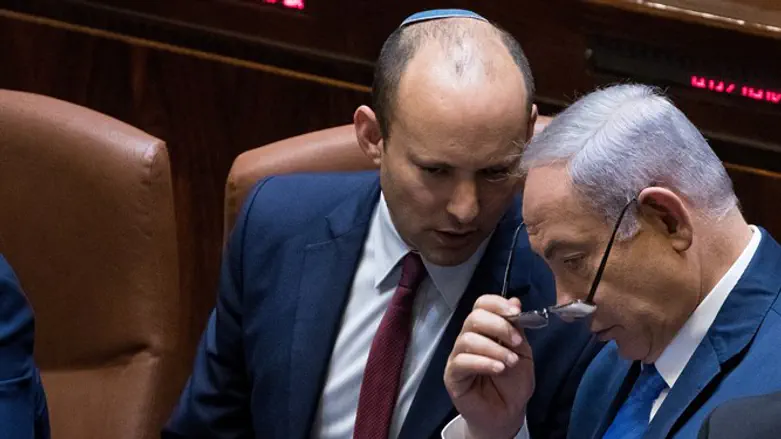
Efforts to build a right-wing coalition government are being focused on convincing Religious Zionist Party chief Bezalel Smotrich to drop his opposition to a government relying on the United Arab List’s support, with no plans to build a government using defectors from other parties, senior Likud officials say.
According to a report by Israel Hayom published Wednesday morning, Prime Minister Benjamin Netanyahu and Yamina chief Naftali Bennett have met for a total of 10 hours in four meetings since Netanyahu was tasked last Thursday by President Reuven Rivlin with forming a new government.
Citing senior Likud officials, the report indicated that the Likud’s negotiating team, which was initially skeptical of Bennett’s intentions, now believes the Yamina party chairman is sincere in his desire to form a government with Netanyahu, given Bennett’s shared interest in forming a rightist government.
The two sides have yet to find a solution for reaching the necessary 61 MKs to form a government, the report said, with senior Likud officials dismissing the possibility of peeling away defectors from either center-right or center-left parties like the New Hope and Blue and White factions.
“Gideon [Sa’ar] is obsessed with getting revenge,” Likud officials said of the New Hope chairman, a former Likud member and long-time Netanyahu rival. “You could offer him everything short of a rotational deal” for him to serve as prime minister “any ministry possible, including a return to the Likud. But he’s not interested in any of it. And if we go to a fifth election, he’ll be wiped out.”
The Likud officials were just as skeptical about the possibility of finding defectors from other parties.
“Also with Benny Gantz there’s no chance. He has fallen in love with the idea of being the one who is standing up to Netanyahu. The idea of getting defectors is pretty much through.”
The best chances of forming a government, the officials said, lie in convincing Smotrich to drop his opposition to a coalition which relies on the support of the United Arab List (Ra’am), an Islamist party which has hinted at its willingness to back Netanyahu for prime minister – in exchange for concessions for the Arab sector in general and the Bedouin population in particular.

